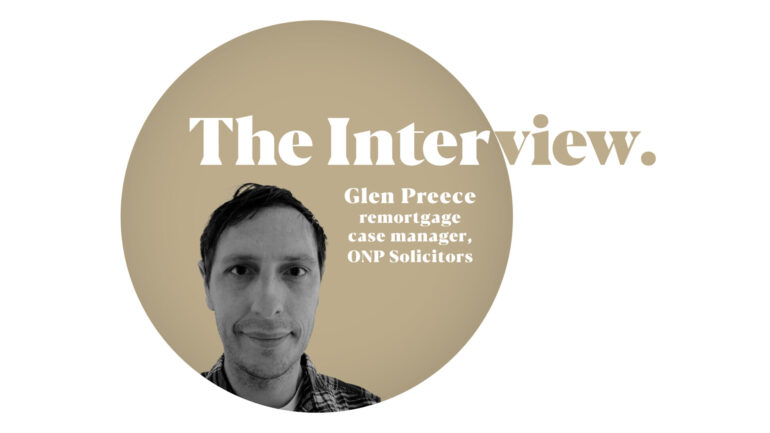Glen Preece, remortgage case manager at ONP Solicitors, part of Movera, shares insights into his role, and how he supports both brokers and borrowers.
Can you walk us through a typical day as a remortgage case manager at ONP?
A lot of my day is spent on correspondence—emails, messages within the app, and calls.
Alongside my usual work I always have my emails open so I can respond quickly when needed.
Keeping brokers and clients updated is key, so I try to be as proactive as possible.
How do you manage a large caseload and stay organised?
I focus on clear, open communication and pre-empt common questions. I set expectations upfront, letting clients and brokers know about timeframes so there are no surprises.
When sending out a document, I always include tailored information to address typical concerns before they arise.
You pick up on these common questions the more you interact with clients and it’s a big time saver addressing them from the off. Picking up the phone when needed also helps keep things moving smoothly.
With a surge in remortgages expected in 2025, how do you anticipate this affecting your work?
It’s a given that it’s going to get busier. But with the right individual practices and support systems in place it’s not that tricky to get on top of it all.
I would actually say the biggest challenge isn’t the volume of cases but how rate changes impact existing ones.
If a client gets a new offer, we have to pick the case back up, even if it was already pretty much done and dusted. When things ramp up, the key is staying on top of it and adapting quickly.
How do you balance the needs of clients, brokers, and lenders while maintaining high service levels?
Prompt responses make all the difference. If you get back to people quickly, they appreciate it and goes a long way in building those relationships if they don’t have to chase you.
It can seem overwhelming when suddenly you have three touch points (clients, brokers and lenders) all contacting you about one case.
But keeping everyone updated, helping with what they need, and being accessible ensures things run smoothly.
How do you ensure compliance with SLAs and regulations while keeping transactions efficient?
If something is at risk of going beyond an SLA, we have systems in place to notify lenders and put holds on files when necessary.
Transparency is key – keeping both clients and lenders informed prevents issues from escalating.
How does technology help you in your role?
I never worked in conveyancing when it was all paper-based, but I can’t imagine handling this volume without tech.
Automated documents speed things up, and the in-app chat function saves us heaps of time since all case details are in one place. Whereas with emails clients often don’t mention key case details so it takes time to find the right case in order to respond.
The system also pushes updates to broker panels automatically, reducing the need for manual follow-ups. These little efficiencies save us hours and enable us to focus on the areas where our expertise are really needed.
What improvements would you like to see in the remortgaging process?
Every mortgage deed should be digital. At the moment, not all are, and that slows things down. Mistakes in paperwork can cause major delays, so having a fully digital system with the ability to amend details quickly would make a huge difference.
If the Land Registry allowed us to generate digital mortgage deeds, it would cut down on unnecessary admin and speed things up considerably.
What opportunities are there for career progression in this role?
I’ve been here for just over two years, I did my training here to take me to a case manager one and I recently moved up to case manager two.
The training is solid, and the workload expectations are realistic. I’m also about to start my CLC (council for Licensed Conveyancers) through our internal training programme. If you want to progress, the opportunities are there.
What advice would you give to someone starting as a remortgage case manager?
Stick with it. When your caseload increases for the first time, it can feel daunting, but with the right training you have the skills to manage this, you can get on top of it.
And most importantly find a company where the support structures are in place—they make all the difference.
Being somewhere that you know wants you to succeed and will support you to is so important. Having a knowledgeable senior case manager also makes a big difference.



